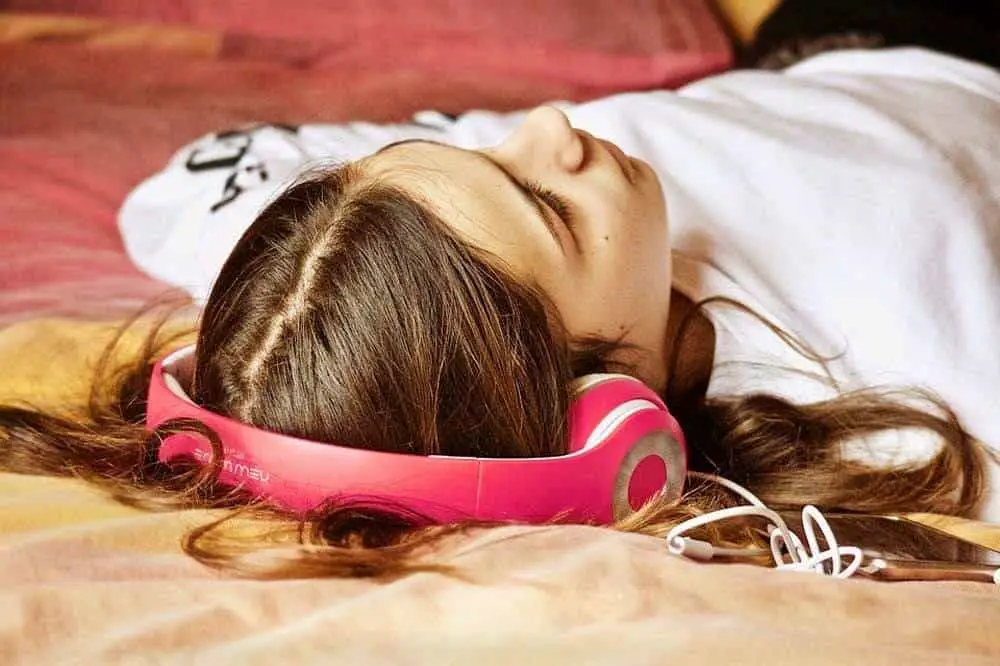Sleep is great when you can get it! But when you can’t seem to sleep, the whole world begins to feel like it’s against you. And when your insomnia lasts for more than just a couple of days you really can begin feeling like you’re going insane.
Since insomnia is often related to stress, high blood pressure, and anxious thoughts, it stands to reason that music may very well be the cure for losing sleep. Science now has proven through a variety of studies that therapy through music can help with a myriad of physical and mental health conditions—not the least of which is insomnia. Cost effective, natural, and not at all addictive, music has been proved to reduce the time it takes to fall asleep as well as minimizing the number of sleep disturbances during the night.
Music Therapy for Insomnia
Since ancient times, music has been used as a therapeutic tool for healing purposes. One recent study has shown that listening to 45 minutes of calming music at bedtime for just three weeks helped people fall asleep more quickly, sleep for a longer amount of time, feel like they have slept better, and struggle less with sleep deprivation problems during the day.
Whether insomnia is acute (lasting less than three weeks) or chronic (lasting more than three weeks), science has shown that music truly can and will help you to battle insomnia in a natural manner. Sleeping tests (polysomnography) have also proven that music therapy for insomnia not only allows people to feel better, but they actually have longer stages of the most important restorative REM sleep.
Although sleep researchers don’t really know exactly why music helps you to sleep better, they are sure that it does. It could be that music has been shown to have a positive effect on the central nervous system, as well as possibly impacting the production of “feel-good” hormones and chemicals in the body. In any case, even if the medical professionals and researchers don’t know why music helps with insomnia, you should still be willing to try it. It’s a natural, risk-free way to possibly get to sleep better at night. And many people with insomnia are desperate and willing to try almost anything!
Best Music to Fall Asleep To
While some music can be soft and relaxing to the brain and body, other types of music can do more harm than good when it comes to battling insomnia. Choosing the right music to help lower your blood pressure, reduce stress, and generally help your mind and body to relax is important if you want music to cure your insomnia.
The best music to fall asleep to:
- Has a slow, stable rhythm
- Has a low-frequency melody
- Is familiar to you and comforting
- Is soft without a lot of variation in tone or volume changes
- Includes violin, guitar, piano, flute, or other soft acoustic instruments
- May sound a lot like a lullaby
- Is set to a timer so that it turns off to avoid waking you later in the night
Some people have good experiences with “music” that is more akin to the sounds that nature makes. Soothing rain storms, chirping crickets, gentle song birds and other sounds of nature have all been set to music that can help calm anxious thoughts and gently lead your mind off to sleep.
Using the radio for sleep music isn’t ideal because you don’t have enough control over the type of music played or the advertisements. A cd player for music therapy to treat insomnia may be your best bet, but be sure that it doesn’t make a loud noise when it turns off. Streaming music online through your phone can also be useful as long as there are no advertisements. But phones can be dangerous as they light up and create other distractions that could keep you from sleeping.
As insomnia is often an underlying part of a larger condition such as anxiety or depression, it is good to remember that music therapy is also effective for treating these struggles. With mood-boosting power, music offers opportunities to reset the focus of your brain to provide mental, emotional and even some physical healing for life.
Conclusion
Using music to cure insomnia is a great way to gently and naturally retrain your brain and your body to fall asleep with health circadian rhythms. Of course, if your insomnia is chronic or related to another illness, you should certainly be under the care of a medical professional to rule out underlying problems.
Falling asleep can feel impossible when you have insomnia, but the cure may be as simple as playing some specially chosen music. So turn those tunes on and get to sleep!
